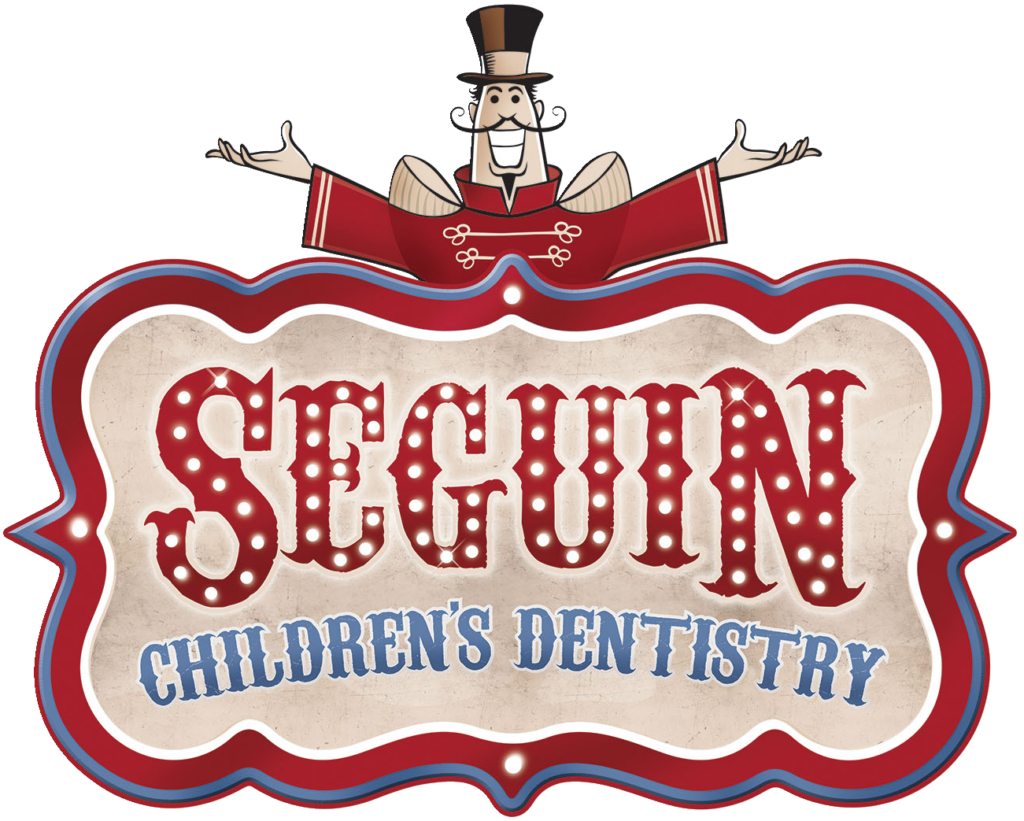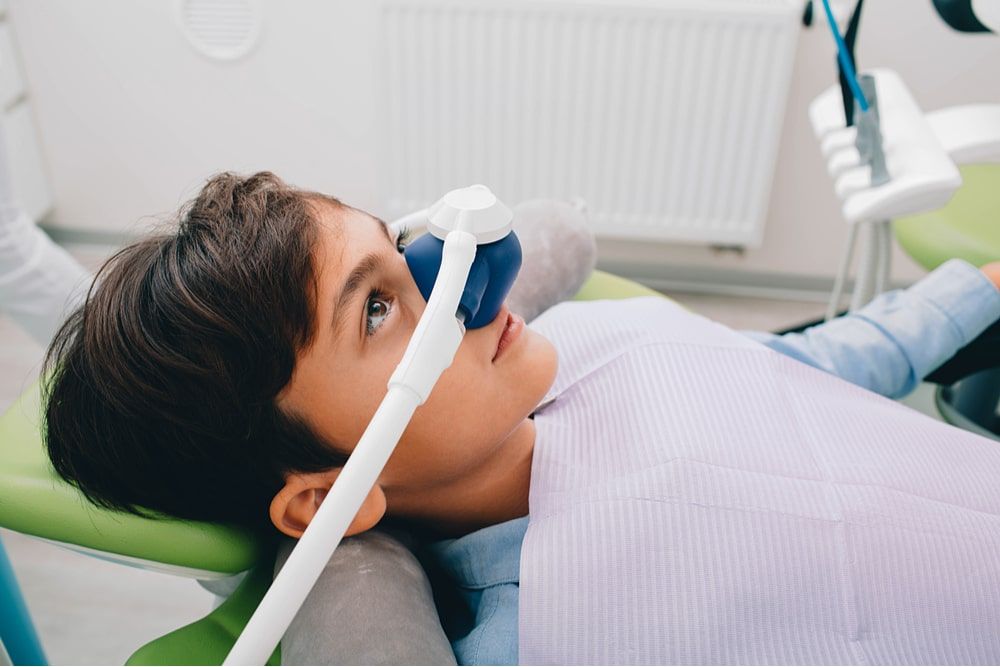Dental sedation is intended to reduce a child’s anxiety and discomfort when completing necessary dental treatment. In most cases, sedative medication will cause a child to feel drowsy, but the effect will wear off shortly after completion of the procedure.
When is Sedation Used?
Sedation is a standard practice in pediatric dentistry and is used for various procedures. Young patients, or patients with anxiety, are often unable to remain still for long periods of time, making it difficult for a pediatric dentist to safely perform dental procedures. Sedation reduces stress and anxiety for the child, and eliminates the risk of unintended injury due to uncooperative behavior.Sedation helps many children relax, cope, and have a more positive experience during dental treatment.
Children do not have the same abilities to understand the importance of sitting still and oftentimes, even the most well-behaved child, can become uncooperative in a dental setting. Additionally, some children struggle with acute situational anxiety during dental appointments. Sedation is especially beneficial for children with special needs, as it helps to guide cooperative behavior and prevent unexpected, physical movement.
It is important to discuss your child’s personality, medical history, as well as their past dental and/or medical experiences with your dentist to help determine if sedation dentistry is the best choice for your child.
What are The Most Common Types of Sedation?
There are several kinds of sedation options available, and each one comes with its own set of risks and benefits. Dr. Velez will assess medical history, the anticipated duration of the procedure, and each child’s level of comfort before recommending a method of sedation.
The following modes of sedation are available in our office:
Nitrous oxide
Also known as laughing gas, is for patients who are apprehensive or anxious. Nitrous oxide is delivered via a small mask that is placed over the child’s nose, and combined with oxygen – meaning that the child can comfortably breathe in through the nose and out through the mouth. It is important to note that Nitrous Oxide does not put the child to sleep. The child is fully conscious and awake for the entire appointment.
Nitrous oxide has a quick onset and can produce temporary feelings of elation. It is painless to deliver and the sedative effects wear off within a matter of minutes. This is one of the major benefits of Nitrous Oxide as the child will not have any lingering sedative effects upon discharge from their appointment. On rare occasions, Nitrous Oxide may cause mild nausea. For this reason, our pediatric dentists recommend avoiding large meals (especially fatty or greasy foods) prior to the appointment.
Before removing the mask completely, the pediatric dental staff delivers pure Oxygen at the end of the appointment to ensure that all Nitrous Oxide is eliminated from the child’s body.
Non-IV Conscious Sedation
Also known as Oral Sedation, is to lessen the significant and undesirable side effects of long or stressful dental procedures by chemically reducing the fear, apprehension, and stresses sometimes associated with these procedures.
The patient is orally administered a liquid dose of various medications to produce a state of moderate sedation. The patient will be very drowsy, but will be aware and awake during treatment. In addition, local anesthetics will be administered to numb the areas of my child’s mouth to be treated and to further control pain.
Oral sedatives are performed in the morning as the patient must refrain from eating for eight (8) hours before their dental appointment. A responsible adult will have to drive the child home and stay with them for the remainder of the day, and until the effects of the sedatives have worn off.
There may be complications, ranging from mild and rarely severe, associated with oral sedation. These include pain, facial swelling or bruising, inflammation of vein (phlebitis), infection, bleeding, tissue discoloration, sore throat, nausea, vomiting, and allergic reaction.
IV sedation
For those children who are very uncooperative, highly anxious, or have extensive dental treatment needs, our pediatric dentists may recommend IV sedation. If IV sedation is recommended, we will require parents to prepare the child before the appointment. Some common preparatory measures include: obtaining a current history and physical from the child’s pediatrician or regular physician, limiting food and drink prior to the appointment, and preparing to stay with the child after treatment for the remainder of the day.
Certain medical conditions may not be suitable for in-office IV sedation and are better served in a hospital or surgical center – we will inform you, and obtain your consent, if this is the case. Our office works with board-certified dental Anesthesiologists who are highly trained to ensure that your child will receive expert and attentive care when getting their dental treatment completed. The Anesthesiologist will discuss the anesthesia procedure with you and go over any questions or concerns you may have.
Is Sedation Dentistry for Children Safe?
One of the biggest concerns for parents is whether pediatric sedation dentistry is safe. As with all medical procedures, there are always inherent risks, benefits and alternatives. Our office takes all of the necessary steps to ensure your child’s health and safety during every procedure. This is especially true in situations where we use sedation to put your child at ease.
Our goal is to always prioritize the comfort and safety of your child, while allowing us to perform necessary dental procedures without causing any undue psychological or emotional trauma. We offer the compassionate, quality dental care they need in a safe and comfortable environment so every child can maintain an optimal level of oral health.




